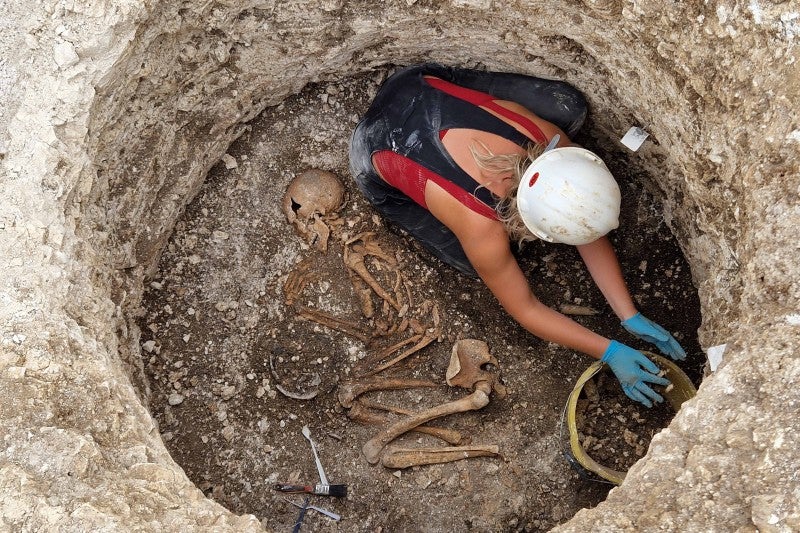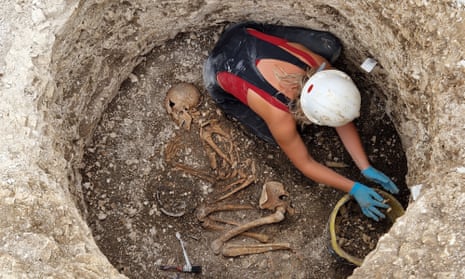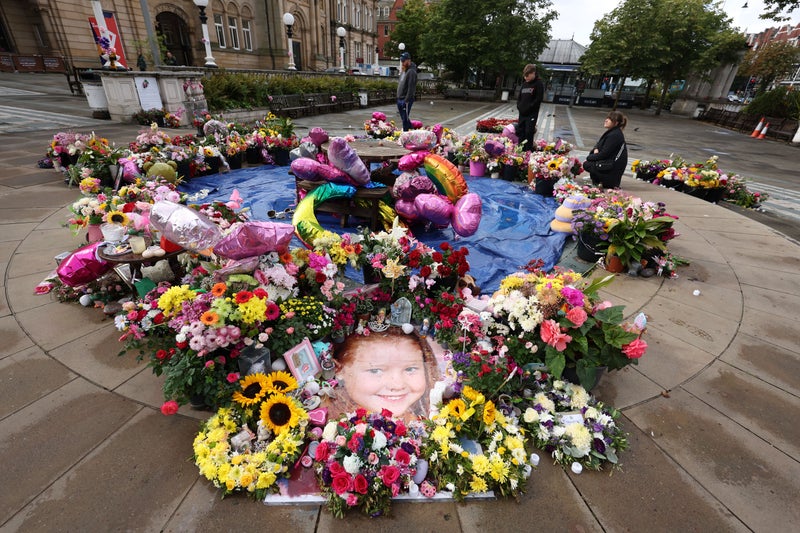Ancient DNA suggests women were at the heart of social networks in Celtic society in Britain
Share:
Female family ties were at the heart of social networks in Celtic society in Britain before the Roman invasion, a new analysis suggests. Genetic evidence from a late Iron Age cemetery shows that women were closely related while unrelated men tended to come into the community from elsewhere, likely after marriage.
An examination of ancient DNA recovered from 57 graves in Dorset in southwest England shows that two-thirds of the individuals were descended from a single maternal lineage. The cemetery was used from around 100 B.C. to 200 A.D. “That was really jaw-dropping – it’s never been observed before in European prehistory,” said study co-author Lara Cassidy, a geneticist at Trinity College Dublin.
The findings, published Wednesday in the journal Nature, suggest that women stayed in the same circles throughout life – maintaining social networks and likely inheriting or managing land and property. Meanwhile “it’s your husband who is coming in as a relative stranger, dependent on a wife’s family for land and livelihood,” said Cassidy.
This pattern – called matrilocality – is historically rare. Archaeologists studying grave sites in Britain and Europe have previously only detected the opposite pattern – women leaving their homes to join their husband’s family group – in other ancient time periods, from the neolithic to the early Medieval period, said Guido Gnecchi-Ruscone at the Max Planck Institute in Germany, who was not part of the study.






















